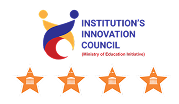

International Journal of Agriculture, Allied Sciences and Technology
Ganpat University, Faculty of Agriculture, Allied Sciences and Technology proudly introduces the International Journal of Agriculture, Allied Sciences and Technology. This journal serves as a premier platform for disseminating advancements in research and innovation, fostering interdisciplinary collaboration, and advancing sustainable practices in agriculture, food, and relevant technology globally. Aimed at academics, industry professionals, and policymakers worldwide, it is dedicated to bridging the gap between theory and practice while driving innovations that address contemporary challenges in agriculture and allied sciences. The journal explores a broad spectrum of topics including smart agriculture, precision farming, renewable energy, and the environmental impacts of agricultural practices. Through rigorous peer-reviewed research, comprehensive reviews, and insightful case studies, the journal is committed to influencing policy, enhancing scientific understanding, and propelling technological progress, making it an essential resource for those dedicated to the future of agriculture.
Research Paradigm
1. Sustainable Agriculture and Food Security
Our institute has chosen sustainable agriculture and food security as one of our primary research projects thrust areas due to their critical importance in addressing the global challenges of feeding a growing population while preserving our natural resources. Sustainable Agriculture practices ensure the long-term viability of farming by promoting methods that are environmentally friendly, economically viable, and socially responsible. This approach not only enhances the productivity and resilience of agricultural systems but also mitigates the adverse impacts of climate change, soil degradation, and water scarcity. Food security, on the other hand, is essential for the well-being and development of societies, ensuring that all individuals have access to sufficient, safe, and nutritious food to lead healthy lives. By focusing our research on these areas, we aim to develop innovative solutions and technologies that will support farmers, improve crop yields, enhance food distribution systems, and ultimately contribute to the eradication of hunger and poverty. This commitment aligns with our mission to advance agricultural science and promote sustainable development for a better future.
2. Climate Change Adaptation and Mitigation
Climate change adaptation and mitigation in agriculture are crucial for ensuring food security and sustainable development. Adaptation strategies such as crop diversification, improved irrigation techniques, and the use of climate-resilient crop varieties help farmers manage risks associated with changing weather patterns. Effective meteorological station provides the details of daily climate variability which might affect the agriculture. Effective soil management practices and adjusting planting dates also contribute to resilience against climate impacts. Meanwhile, mitigation efforts focus on reducing greenhouse gas emissions through better livestock and manure management, promoting carbon sequestration via agroforestry, and adopting sustainable land management practices. The use of renewable energy and efficient resource utilization further minimizes agriculture carbon footprint. Integrated approaches like Climate-Smart Agriculture (CSA) and agro-ecology offer holistic solutions by combining adaptation and mitigation strategies. Supporting these efforts with policy, institutional backing, technological innovation, and international cooperation is essential for the widespread adoption of sustainable agricultural practices.
3. Smart Agriculture
Smart agriculture advantages advanced technologies to enhance the efficiency, productivity, and sustainability of farming practices. By integrating Internet of Things (IoT) devices, farmers can monitor soil moisture levels, crop health, and weather conditions in real time, enabling precise irrigation and fertilization. The use of drones and satellite imagery allows for detailed field mapping and early detection of pests or diseases, reducing the need for chemical interventions. The institute offers outreach activities in collaboration with the Indian Institute of Remote Sensing (IIRS) and the Bhaskaracharya National Institute for Space Applications and Geo-informatics (BISAG). Data analytics and artificial intelligence (AI) provide insights into optimal planting schedules, crop rotations, and yield predictions, improving decision-making processes. Additionally, smart agriculture promotes resource conservation by minimizing water and energy use, while also reducing greenhouse gas emissions through more efficient practices. This tech-driven approach not only boosts agricultural productivity but also ensures environmental sustainability, making it a critical component in addressing the challenges of modern farming.






